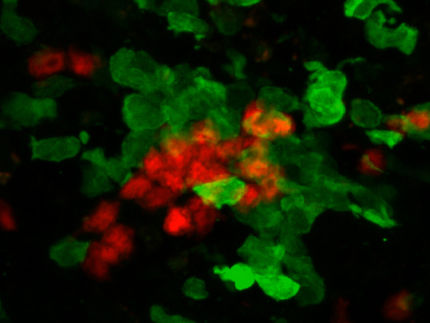Revotar AG starts supplementary clinical phase-I study with bimosiamose
Advertisement
Revotar Biopharmaceuticals AG announced that it has started a phase-I study with its drug bimosiamose, a pan-selectin antagonist. In this double-blind, placebo-controlled, randomized trial, safety and tolerability as well as pharmacokinetic characteristics of subcutaneously administered single and multiple ascending doses of bimosiamose will be investigated in 24 healthy male subjects. It will be carried out by PAREXEL International GmbH, Clinical pharmacology Research Unit in Hennigsdorf, State of Brandenburg, Germany. The study is part of the human safety and pharmacokinetic package of bimosiamose formulations with systemic bioavailability.
Bimosiamose is a synthetic small molecule pan-selectin antagonist. The supposed mode of action of bimosiamose is the inhibition of all three members of the selectin family of cell adhesion molecules (selectins): E-, P-, and L-selectin (pan-selectin antagonist). P-selectin is a rapidly inducible selectin found primarily on activated platelets and vascular endothelium. E-selectin is an intermediate inducible selectin found primarily on activated vascular endothelial cells. L-selectin is constitutively expressed on the surface of several leukocyte subtypes, including neutrophils, monocytes, the majority of circulating B- and T-cells, and on a subset of natural killer cells. Selectins mediate the initial rolling or "tethering" of leukocytes on the vascular endothelium during leukocyte transmigration from the circulation into surrounding tissue. Under pathological circumstances like in inflammation, this process is generally considered to be the primary event in the response to inflammatory stimuli. Therefore, it constitutes an attractive target for therapeutic intervention in the modulation of inflammation. In this respect, bimosiamose is expected to hinder the pathological and excessive migration of leucocytes from the circulation into the surrounding inflamed tissue.
Other news from the department research and development

Get the life science industry in your inbox
By submitting this form you agree that LUMITOS AG will send you the newsletter(s) selected above by email. Your data will not be passed on to third parties. Your data will be stored and processed in accordance with our data protection regulations. LUMITOS may contact you by email for the purpose of advertising or market and opinion surveys. You can revoke your consent at any time without giving reasons to LUMITOS AG, Ernst-Augustin-Str. 2, 12489 Berlin, Germany or by e-mail at revoke@lumitos.com with effect for the future. In addition, each email contains a link to unsubscribe from the corresponding newsletter.




















































